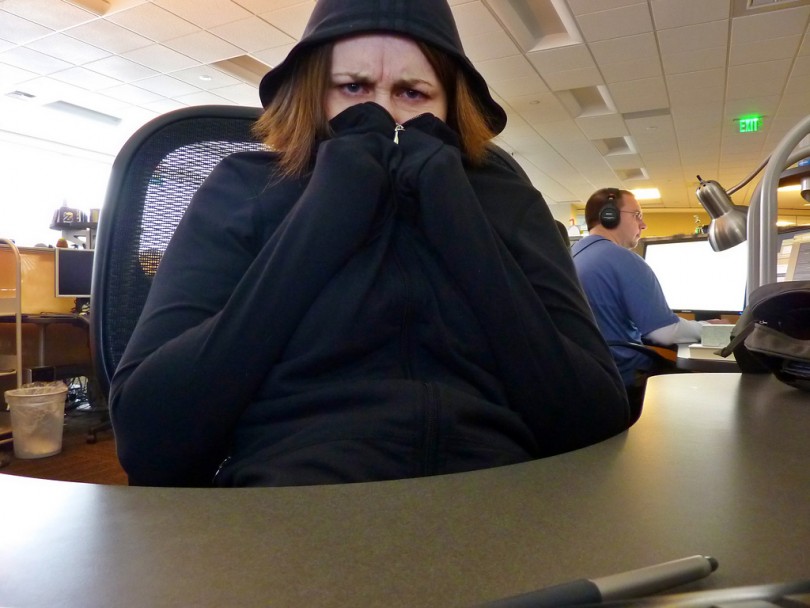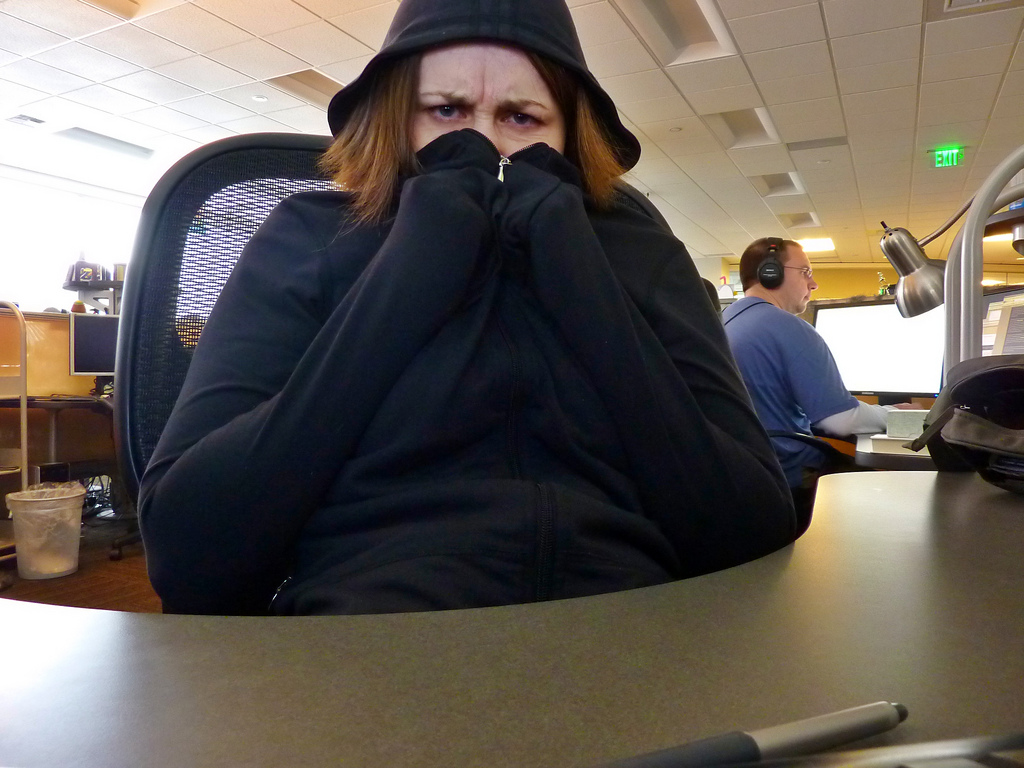Women in the workplace are being left in the cold.
Despite making up 45 per cent of the Australian work force, we make only 77 cents to every dollar earned by a man, and regardless of our job experience or tenure, we are still less likely to be promoted than Johnny in the cubicle next door.
And to top it all off, the patriarchy are making us freeze at work.
A study published on Monday shows women are facing even more gender bias at work, with air conditioning remaining at standards set 50 years ago.
In the study, researchers Boris Kigma and Wouter van Marken Lichtenbelt said office air conditioning standards are based on the resting metabolic rate of a 70-kilogram, 40-year-old male.
That means office air conditioning overestimates the heat production of close to half of the workforce, causing women to freeze during summer.
On average, women feel comfortable when the room is 25 degrees Celsius and men at 22 degrees Celsius.
Dr Dominique Hes, senior lecturer at Melbourne University, said buildings usually adopt a temperature range of 20-22 degrees.
“When you try and keep [a building] at a specific temperature… the constant adjustment wastes a lot of energy,” she said.
The study found energy consumption of residential buildings and offices contribute to about 30 per cent of the world’s carbon dioxide emissions.
Put simply, by using so much energy to keep men cool, we’re actually warming the planet.
Dr Hes said Australian offices should aim to increase their temperature range to 18-26 degrees and to apply the adaptive comfort method.
Adaptive comfort challenges the notion that office temperature should be controlled mechanically.
“Give a person a window they can open, a blind they can close, a light they can switch on and vents they can turn up or down or away from themselves and you will get great improvements in productivity and comfort… and you will save energy,” Dr Hes said.
[poll id=”53″]








[…] Originally posted on RMIT’s City Journal […]